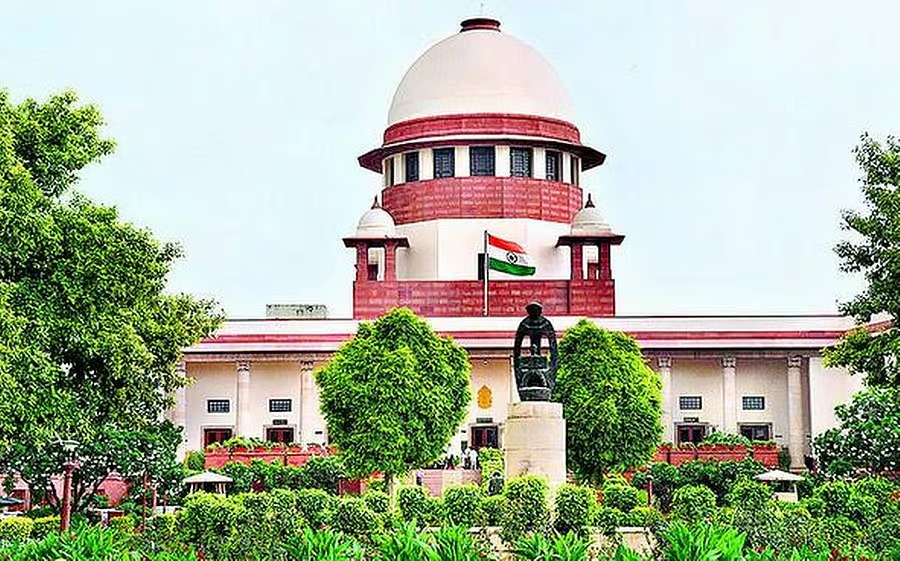Ganendra Narayan Ray, J.@mdashThis Rule is directed against the award passed by the Seventh Industrial Tribunal. West Bengal, in Case No. VIII 44/75. The award is Annexure "G" to the writ petition. It appears that the respondent No. 1 Sri Nanda Kumar Singh was a durwan of M/s. Ludhlow Jute Co, Ltd. and he was charge sheeted under Sub-clauses (viii) and (ix) of clause 14(c) of the Standing Orders of the company. The said durwan submitted his written explanation, but the management not being satisfied with the explanation held a domestic enquiry. The said Sri Singh, however, did not examine any witness and/or cross-examine any of the witnesses examined by the company. The enquiring officer found the said Sri Singh guilty of the charges and submitted a report. The said report was accepted by the management of the company and Sri Singh was dismissed from service. An industrial dispute was thereafter raised by the union and a reference was made by the Government of West Bengal to the Seventh, Industrial Tribunal, West Bengal, for deciding the issue to the following effect:
Whether the termination of service of Sri Nanda Kumar Singh, T. No. 98-117, is justified ? To what relief, if any, is he entitled.
It appears that before passing the award the Tribunal decided the preliminary issue as to whether or not the domestic enquiry was conducted properly and the Tribunal after considering the materials on record came to the finding that this domestic enquiry was held properly and the findings of the enquiring officer were n t perverse and the said finding were also based on evidence. The Tribunal also came to the finding that the enquiry was not only fair and proper, but the findings of the enquiring officer were unassailable. After the said preliminary finding, the reference was set down for further hearing on merits. It was contended by the petitioner company that the Tribunal having held that the domestic enquiry was properly made and the findings of the domestic enquiry were also just and proper the reference must be answered in favour of the company and the concerned employee was not entitled to any relief whatsoever. It a pears that the Tribunal although accepted the finding made in the domestic enquiry as just and reasonable, the Tribunal was of the view that the punishment given to the concerned employee was harsh and disproportionate. Therefore, in exercise of the power conferred by Section 11A of the Industrial Disputes Act, the Tribunal held that instead of an order of dismissal it would be an adequate punishment if the workman was treated as under suspension from the date of the order of dismissal till the publication of the award in the official gazette. It was further held that during the said period the concerned workman would receive no wages and he would not be entitled to any suspension allowances. He would also not be entitled to any increment for the said period. It was further directed that the management would be at liberty to deduct a sum of Rs. 100 from his wages as the cost of two drums which were found missing. It was, however, provided for in the award that there would be no break of service of the said Sri Singh. The said adjudication and award are under challenge in the instant rule.
2. Mr. Dutta, the learned Counsel appearing for the petitioner, company, contends that after the amendment of the Industrial Disputes Act by incorporation of Section 11A, the Tribunal has the authority to re-assess the evidence adduced before the domestic Tribunal and/or before the Industrial Tribunal and on such re-assessment, the Tribunal can decide as to whether or not an order of dismissal was justified. The Tribunal has also power to give an award imposing lesser punishment if the Tribunal is satisfied from the facts and circumstances of the case that the punishment was harsh and disproportionate to the guilt committed by the concerned employee, Mr. Dutta, however, contends that although the Tribunal has such power to minimise the punishment in certain circumstances, it has a duty to consider the evidences and materials on record objectively and to give cogent reasons as to why the Tribunal is inclined to give lesser punishment to the concerned employee. Mr. Dutta contends that in the instant case, the Tribunal on consideration of the materials on record and evidences adduced in the domestic enquiry; came to the finding that there was no victimisation of the concerned employee and the domestic enquiry was conducted properly and all reasonable opportunities of being heard were given to the said employee. Mr. Datta submits that having held that the domestic enquiry was quite fair and reasonable, the Tribunal should not have passed the award by changing the punishment of dismissal without giving proper reasons. He contends that the Tribunal mechanically came to the finding that punishment was oppressive and harsh and as such lesser punishment should be awarded to the employee. In this connection. Mr. Dutta refers to a decision made in the case of
3. Mr. Chakraborty, the learned Counsel appearing for the respondent No. 1, namely, the said dismissed, durwan however, contends that no case of loss of confidence on the said employee was made out by the company either in the evidence given before the Tribunal or in the written statement and the question of loss of confidence is a question of fact and such question should not be allowed to be canvassed before this Court for the first time. Mr. Chakraborty also contends that the Tribunal in the instant case save reasons as to why punishment of dismissal was not just and proper in the facts of the case. The Tribunal had taken into consideration the materials on record and the evidence adduced by the parties and on such consideration came to the finding that the punishment imposed on the concerned employee was harsh and severe and it was fit and proper to inflict lesser punishment. Mr. Chakraborty also contends that even assuming that on the facts of the case, some other view could have been taken, but the Tribunal having acted within its jurisdiction there is no occasion to interfere by this Court in the constitutional writ jurisdiction. In this connection. Mr. Chakraborty refers to a decision of the Supreme Court made in the case of
4. After considering the submissions of the learned Counsel appearing for the parties it appears to me that in the facts and circumstances of the case, the Tribunal has not considered properly as to why the order of dismissal passed by the company on the durwan was unjustified. It is true that the Tribunal held that the punishment inflicted on the durwan was oppressive and harsh, but the special consideration involved in the dereliction of duty of a durwan was not the considered in its proper perspective particularly when the Tribunal held that the company had no vindictive attitude against the durwan and the domestic enquiry was fair and the findings were also not perverse It should be noted that if the Tribunal mechanically exercises its discretion without weighing the circumstances such act on amounts to no exercise of discretion. Although the company did not specifically plead about loss of confidence in the durwan in the instant case as pointed out by Mr. Chakraborty, it should be considered from the facts and circumstances of the case as to whether or not the loss of confidence is implicit in the punishment of dismissal as contended by Mr. Dutta. In my view, the Tribunal should specifically consider the justification of reinstatement of the durwan who had admittedly failed to perform his duties as durwan. Mr. Datta is justified in his contention that the quantum of loss suffered by the company caused by the dereliction of duty by a durwan should not be a guiding factor but the Tribunal should take into consideration as to whether or not even in spite of such dereliction of duty, it would be just and proper to reinstate the durwan in exercise of the discretionary power u/s 11A of the Industrial Disputes Act. It appears to me that that the Tribunal has not made proper consideration in this regard. Accordingly, the award passed by the Tribunal is set aside and the Tribunal is directed to consider the case afresh on the question of quantum of punishment on the materials on record. As the matter is pending for a long time, the Tribunal is directed to decide the case as expeditiously as practicable preferably within three months from the date of the receipt of the order of this Court.
5. By way of abundant caution, it is made clear that after considering the facts and circumstances of the case the Tribunal will be quite free to decide as to whether or not the punishment inflicted on the durwan was reasonable or whether or not a lesser punishment is required to be given to the concerned durwan and and it is also made clear that this Court has not expressed any opinion on the question of punishment of the concerned employee. The Rule is accordingly disposed of. There will be no order as to costs.

